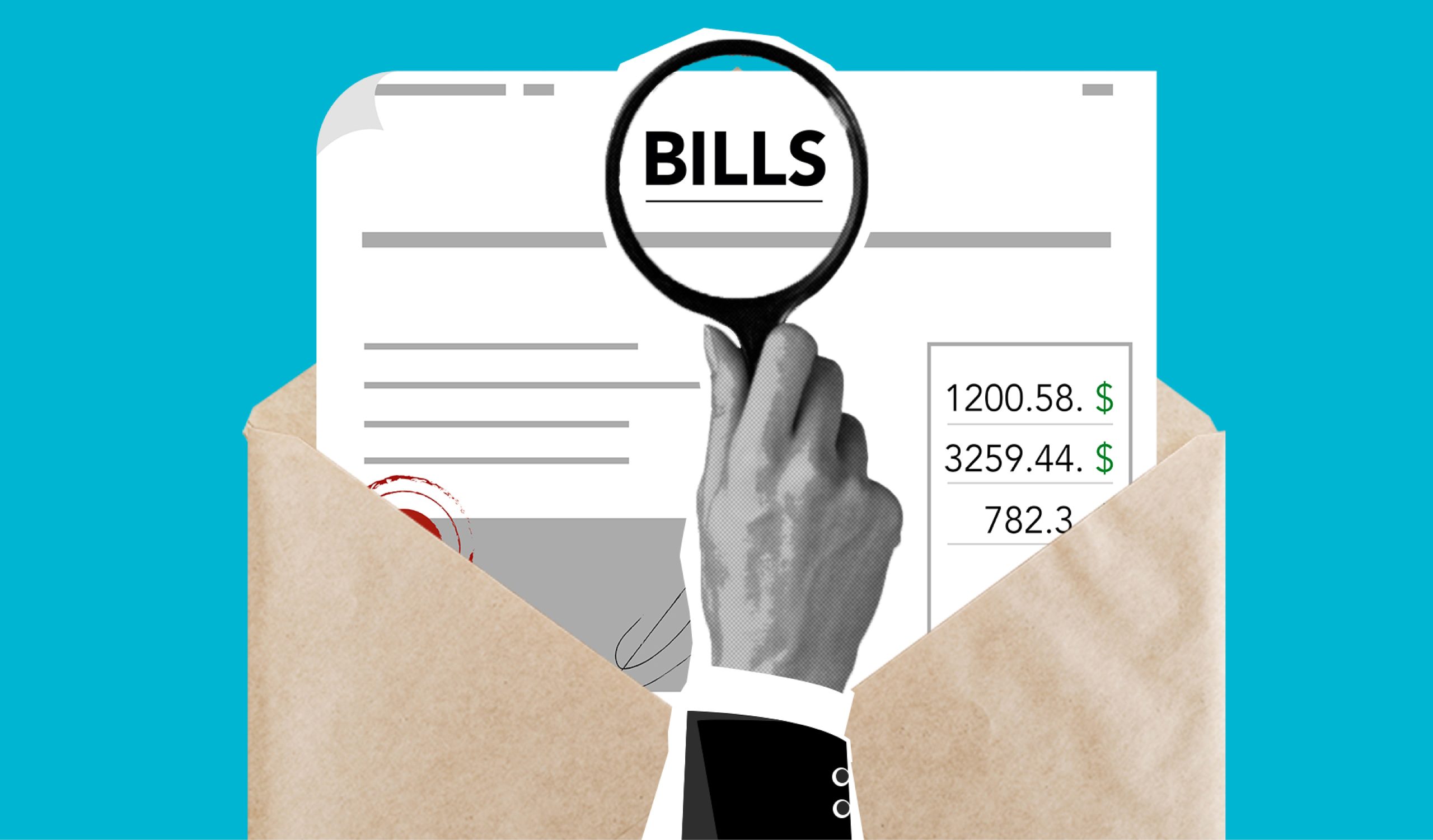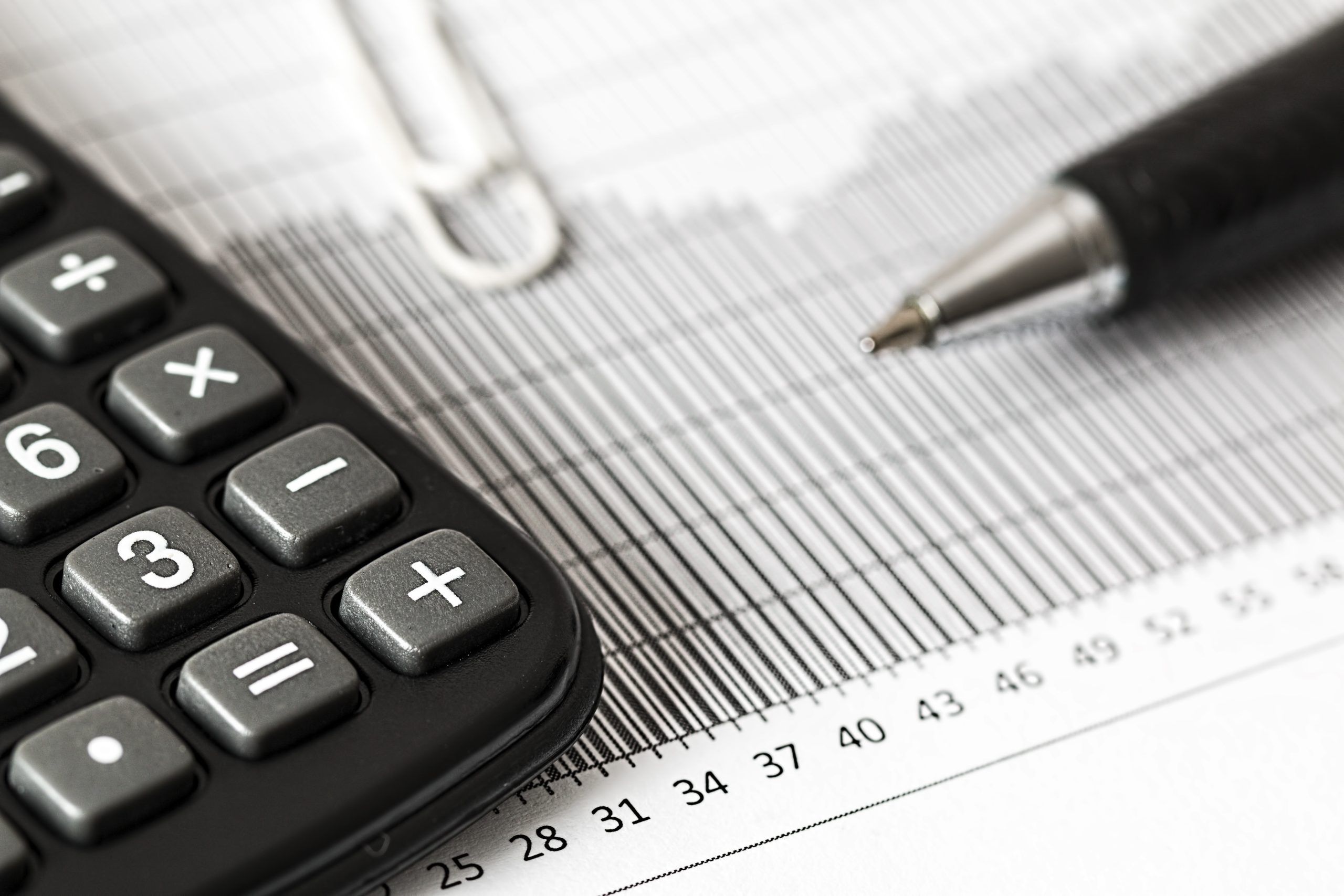Are you dealing with overwhelming tax debt? It’s a common problem for individuals and businesses alike. With an understanding of the options available to you, however, you can pay off your tax debt once and for all. Let’s discuss how to pay off tax debt so that you can get back on the path to financial freedom.
For many people, the thought of taking on a large amount of debt can be daunting. But if you take the time to understand what your options are and determine which one is best for your situation, it can actually be quite manageable. There are several methods available to help reduce or completely eliminate your tax burden. Depending on your individual circumstances, some of these may be more effective than others in getting rid of your debt quickly and efficiently.
No matter what option you choose, it is important to know that paying off tax debt can be done in a way that works best for you and meets both your short-term and long-term financial goals. In this article we will explore how to pay off tax debt and review some strategies that could help make the process easier and less stressful.
Overview Of Tax Debt

Tax debt can be a daunting issue to deal with. It’s important to understand the basics of tax debt and how it works in order to make the right decisions when it comes to paying off what you owe.
Tax debt generally occurs when you owe money to the IRS or other state or local tax authorities as a result of unpaid taxes. These taxes are usually due on April 15th each year, but if you’re unable to pay them then, you may incur interest and penalties that increase your overall debt. You may also get behind on your taxes if you don’t file them on time or if your income has changed since last year.
If you find yourself in this situation, it’s important not to panic. There are a variety of options available for paying off your tax debt, including payment plans and negotiation with the IRS. The key is to take action as soon as possible so that the amount owed doesn’t become unmanageable.
Types Of Tax Debt
Tax debt can be complicated and difficult to understand. It’s important to understand the different types of tax debt before you start trying to figure out how to pay it off. There are three common types of tax debt: personal income taxes, business taxes, and payroll taxes.
Personal income taxes are the most common type of tax debt and involve filing a return with either the IRS or your state’s department of taxation. When filing your return, you must report any income that you earned during the year and any deductions you may be eligible for. If you owe money after filing, then you have personal income tax debt.
Business taxes involve reporting a business’s revenue and expenses to both the IRS and your state’s department of taxation. Business taxes can include corporate income tax, sales tax, self-employment tax, or excise taxes. Any unpaid business taxes become business tax debt.
Payroll taxes involve employers withholding money from their employees’ wages for Social Security, Medicare, and federal unemployment insurance (FUTA) contributions. Employers must remit these funds to the government on behalf of their employees; if they do not do this in a timely manner, unpaid payroll taxes become payroll tax debt.
Once you know what type of tax debt you have, you can begin researching options for paying it off. This could include making monthly payments over time or negotiating a payment plan with the IRS or state department of taxation. Additionally, depending on your circumstances and the amount owed, there may be other methods available such as requesting an offer in compromise or applying for currently not collectible status with the IRS.
IRS Payment Options
Now that you understand the types of tax debt, it’s important to know how to pay them off. The Internal Revenue Service (IRS) provides several payment options for individuals in need of tax debt relief. Here are five ways to pay off your tax debt:
– Payment in Full – You can pay your entire balance at once online or via mail.
– Installment Agreement – This option allows you to make monthly payments until the full amount is paid off.
– Offer in Compromise (OIC) – The OIC allows taxpayers with a financial hardship to negotiate a settlement amount that is less than the original balance owed.
– Currently Not Collectible Status – If you don’t have enough money to pay off your tax debt, the IRS may place you into Currently Not Collectible status which temporarily suspends collection activity.
– Partial Payment Installment Agreement (PPIA) – A PPIA lets taxpayers who cannot afford an installment agreement their full balance over time make partial payments instead.
These payment options can help reduce the burden of tax debt and allow taxpayers to get back on track financially. It is important to research each option carefully before committing and speak with a qualified tax expert if needed. Depending upon your individual circumstances, one of these payment methods could be the best solution for paying off your tax debt and getting back into good standing with the IRS.

Negotiating Settlement Agreements
Negotiating settlement agreements with the IRS can be an effective way to pay off tax debt. Before attempting to negotiate, taxpayers should understand their rights and the consequences of different settlement options. It’s important to explore all available options, such as payment plans, offers in compromise (OICs), or Currently Not Collectible status.
When negotiating with the IRS, it’s important to remain firm and realistic. They may offer repayment terms that are not possible. If negotiations fail, taxpayers may need to seek professional advice from a tax attorney or enrolled agent. These professionals can assist with complex situations and ensure taxpayers are treated fairly by the IRS.
Taxpayers should also be aware of potential impacts on their credit report when settling a debt with the IRS. Opting for an installment agreement or OIC could result in a lower credit score in some cases. It’s important to weigh all of these considerations before entering into an agreement with the IRS.
Credit Card Payment Plans
Paying off tax debt with a credit card is an option for some individuals. There are two ways to utilize this method of payment: by directly paying the IRS or by using a third-party processor. Using a third-party processor is generally more expensive, but it can provide convenience and flexibility.
When using a credit card to pay off tax debt, it’s important to make sure that you are aware of any associated fees or interest rates. It’s also important to read all the fine print on any agreement before signing up for a payment plan. You should also be aware of any potential penalties associated with late payments or missed payments when using a credit card to pay taxes.
Payment plans can help individuals who are struggling with tax debt but unable to pay in full right away. If you choose this option, it’s important to read all the terms and conditions carefully, as well as make sure that you understand how much interest and/or fees will be assessed on your balance over time. Be sure to keep track of your payments and contact the IRS if there is ever an issue with your agreement.
Bankruptcy Considerations
There are several other options to pay off tax debt. Bankruptcy is one of those options, but it should be approached with caution and careful consideration.
Filing for bankruptcy can provide an individual or business with a much-needed fresh start, however, it also has its drawbacks. In addition to remaining on the credit report for up to 10 years, the debtors may have to liquidate some of their assets in order to pay off any debts that remain after filing for bankruptcy. Furthermore, individuals and businesses may lose certain rights associated with their property after filing for bankruptcy.
For those considering bankruptcy as an option for settling tax debts, it’s important that they understand all of the implications before making a decision. It’s wise to consult a qualified attorney or financial advisor who can help them weigh their options and determine if this is the best course of action for their particular situation.
Appealing An IRS Decision

If you disagree with a decision made by the IRS, it is possible to appeal. The first step in appealing an IRS decision is to submit a letter of protest within 30 days of receiving the decision. The letter should state your reasons for disagreement and provide supporting evidence. It’s important to include any relevant facts and laws that pertain to your case, as well as copies of any documents that support your position.
After submitting the letter, you may be able to have an informal meeting or phone call with an IRS representative. During this meeting, you’ll discuss why you disagree with the decision and provide additional information or documents that support your position. If the representative is unable to resolve the issue at this meeting, they will refer the case to a higher-level review within the IRS.
The review team will evaluate your case and determine whether or not the decision should be overturned. In some cases, they may recommend changes or adjustments to your tax debt amount or payment plan. You can also request a hearing before an appeals officer if needed; however, this process can take several months depending on your situation.
Hiring A Tax Professional
Hiring a tax professional is one way to pay off your tax debt. A tax professional can help you understand the details of your case and advise you on the best course of action. They can also negotiate with the IRS on your behalf and help reduce the amount of taxes that you owe.
When hiring a tax professional, make sure to do your research first. Ask around for referrals from people you trust, or look online for reviews. You should also ask potential candidates about their qualifications, experience, fees and payment arrangements. Make sure that they are registered with the IRS and have all the necessary certifications.
It’s important to carefully consider all of your options before deciding whether to hire a tax professional or not. Be sure to weigh all costs and benefits before making any decisions.
Working With A Collection Agency
Once you have hired a tax professional to help you, the next step is to work with a collection agency. Collection agencies are organizations that contact taxpayers who owe taxes and work out payment plans or other arrangements with them. They are usually contracted by the IRS or state to collect overdue taxes. Working with a collection agency can be intimidating, but it’s important to remember that they are there to help.
The first thing you should do when working with a collection agency is to be open and honest about your financial situation. This will allow the agency to come up with an appropriate payment plan for your specific needs. The payment plan should include how much you can afford to pay each month and how long it will take for the debt to be paid off in full. If possible, try to negotiate lower payments or interest rates if you can’t afford the full amount of taxes due.
You should also make sure that all information provided is accurate and up-to-date so that the collection agency can accurately assess your financial situation and come up with a reasonable payment plan for you. Once everything has been agreed upon, make sure to keep track of payments and follow through on them as agreed upon in order for your debt to be paid off in full.
Establishing An Installment Plan
Establishing an Installment Plan is one of the best ways to pay off tax debt. It allows taxpayers to make manageable payments over a period of time. Here are three key benefits:
- No Upfront Payment: With an installment plan, there is typically no upfront payment required. This can provide some financial relief for those taxpayers who may not have the money available to pay their full balance at once.
- Interest and Penalty Waiver: Under certain circumstances, the IRS may waive all interest and penalty fees associated with the debt, as long as all payments are made on time throughout the course of the agreement.
- Repayment Period: Depending on financial circumstances and other factors, the IRS will generally agree to a repayment period that fits within a taxpayer’s budget and lifestyle – usually up to 6 years in most cases.
Depending on individual circumstances, establishing an installment plan can be beneficial for taxpayers looking for ways to manage their tax debt. It’s important to understand all requirements before entering into a payment agreement with the IRS in order to ensure it’s right for you and your financial situation.
Impact On Your Credit Score
Paying off tax debt can have a positive impact on your credit score. Depending on the type of debt you owe, it can be reported to the credit bureaus either as an installment loan or a collection account. If your debt is reported as an installment loan, making timely payments will help boost your score by showing that you are responsible with paying back what you owe. However, if your debt is reported as a collection account, paying it off won’t necessarily improve your credit score right away; it could take up to 6 months for that improvement to show up.
In addition, since resolving tax debt results in less stress and fewer financial obligations, this could also have a positive effect on your credit score over time. When creditors review your credit report and see that you are managing other debts responsibly and without any additional delinquencies, they may look more favorably upon lending you money or extending new lines of credit.
Therefore, taking steps to pay off tax debt can be beneficial for both avoiding penalties from the IRS and improving your overall financial standing in the long run. Paying off this type of debt can make it easier for you to build a better financial future and increase your chances of being approved for additional loans and lines of credit.
Tips For Minimizing Tax Liability In The Future
The best way to reduce future tax liability is to avoid it in the first place. There are several strategies that can help taxpayers minimize their tax liability:
Proactive Strategies:
– Stay informed: Tax laws can change frequently, so staying up-to-date on the latest changes is essential for minimizing tax liability.
– Make use of deductions: Knowing which deductions are available and taking advantage of them can help reduce taxes owed.
Reactive Strategies:
– File an extension: If taxpayers think they may owe more than they can afford to pay, filing an extension can give them additional time to save and come up with the money needed to pay off their taxes.
– Pay as much as possible upfront: Paying as much of the debt as possible upfront not only reduces the amount owed but also reduces the amount of interest and penalties due.
Taxpayers should also consider seeking professional advice from a tax expert if they have difficulty understanding and managing their own taxes. Professional advice can help maximize deductions, credits, and other opportunities for reducing taxes owed. Additionally, a qualified tax expert will be able to provide guidance on how to pay off any existing tax debt in an efficient manner.
Resources For Further Help
There are several options available for those looking to pay off their tax debt. First, you can contact the IRS directly to discuss payment plans or other options for resolving your tax situation. The IRS has a variety of payment plans and options available, so it is important to contact them as soon as possible. Additionally, you can work with a tax specialist or accountant who can help you understand your situation and develop a plan that works best for your needs.
You may also be able to take out a loan or use credit cards to pay off your tax debt. However, this should only be done if you have discussed all other options with the IRS and have determined that this is the most suitable option for you. It is important to keep in mind that interest rates on loans and credit cards are generally high and could end up costing more than what you owed before taking out the loan or using a credit card.
In order to ensure that you make the best decision when it comes to paying off your tax debt, it is essential that you seek professional advice from either the IRS or an experienced tax specialist or accountant. They will be able to provide advice and assistance on which solution would be best suited for your circumstances and budget.
Talk To a Professional

The good news is, you don’t have to go it alone when it comes to paying off tax debt. There are several options available to you that can help you get back on track with the IRS.
First, consider negotiating a settlement agreement with the IRS. You may be able to negotiate a reduced amount or an installment plan. Additionally, if you’re able to pay off your debt quickly, there are benefits like avoiding additional penalties and interest charges.
Finally, there are also other resources available for further assistance. You can reach out to a qualified tax professional or explore additional payment plans offered by the IRS. Doing so can help make sure you’re taking advantage of all possible options when it comes to resolving your tax debt situation.
No matter what option you choose, remember that paying off your tax debt is an important step towards financial freedom and security. Taking action now will help ensure you have a brighter future ahead.